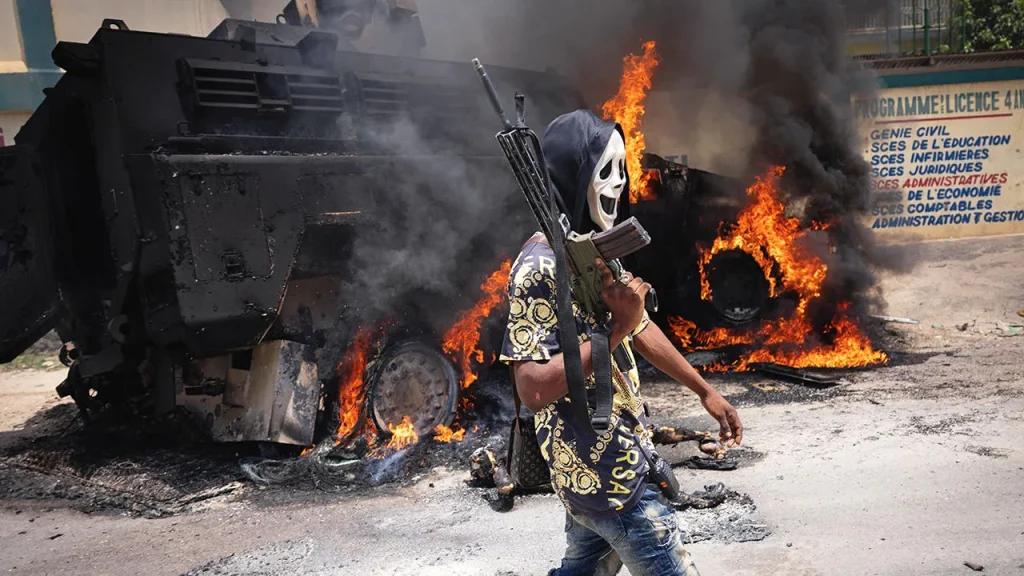More than 40,000 residents of Port-au-Prince, Haiti, have fled their homes in just ten days due to a surge in gang violence, marking the worst wave of displacement in two years, according to the United Nations’ International Organization for Migration (IOM).
Between November 11 and 20, 40,965 individuals were forced to move—some for the second or third time—as clashes intensified in various neighbourhoods of the Haitian capital.
“The scale of this displacement is unprecedented since we began responding to the humanitarian crisis in 2022,” said Gregoire Goodstein, the IOM’s chief in Haiti, in a statement.

Port-au-Prince and its surrounding areas have been engulfed in violence, with gang coalition “Viv Ansanm” (“Living Together”) waging violent operations. The alliance, formed earlier this year, aims to challenge political authority and destabilise the government.
Since February, Haiti has seen worsening unrest, culminating in widespread violence that has displaced over 700,000 people.
“This crisis is not just a humanitarian challenge. It is a test of our collective responsibility,” Goodstein emphasised.
Haiti has long grappled with political instability, and the latest security crisis stems from the unchecked power of armed gangs accused of murder, kidnappings, and sexual violence. The violence has escalated since the resignation of Prime Minister Ariel Henry in April, leaving the nation further destabilised.


